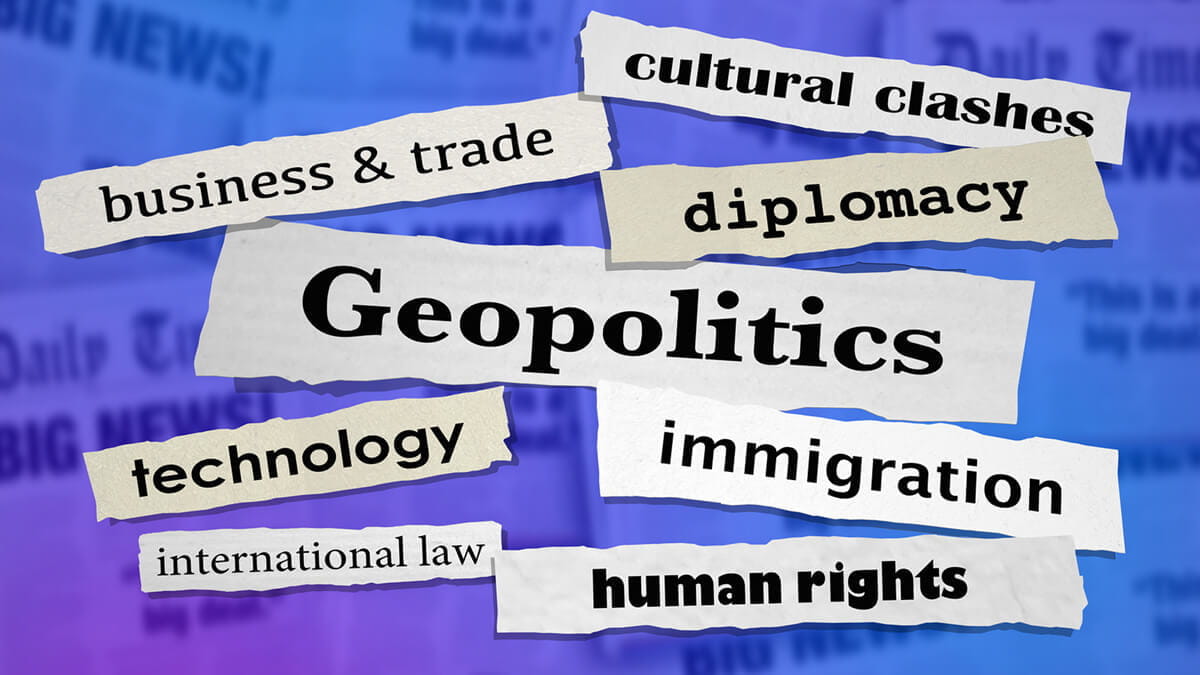Geopolitics is the impact geography has on a country’s politics and public policy.1 In fact, there is often a certain level of political power that can be linked to a country’s geography. One country might be in control of certain waterways. Another might be adversely affected by drought. These geographic features can have strong political implications within the country and in terms of international relationships.
One way to better understand geopolitics is to look at common geopolitical situations. Here are three to consider.
1. Pollution
Pollution is a problem that extends beyond national borders. Pollution from one county can harm people of a neighboring country.2 The Paris Agreement is an example of geopolitics and how countries work together to combat the problem of pollution beyond their own borders. Each country agreed to align their public policy to reduce pollution.3 Each country doing what it can leads to a positive impact for all parties. The Paris Agreement demonstrates how geopolitics works to solve a global problem.
2. Energy
Energy is another classic example of geopolitics. Some countries are richer than others in energy resources like oil, natural gas, and coal. But all countries need energy resources to function. Energy demand and supply plays a major role in international public policy. Countries that don’t have their own natural resources may take extreme actions to access energy. This can lead to conflict or war.4 Energy policy is a helpful way to understand geopolitics because it shows the extreme actions a country may be willing to take because of geographic limitations.
3. Water
Examining water policy can also help demonstrate geopolitics. Water is vital to every country. Areas that experience little rain, or that don’t have lakes or rivers, may struggle agriculturally. Drought can also lead to migration of people seeking more fertile areas. Countries with access to water ports can take advantage of waterways for defense and trade. Being able to move goods by water is cheaper and more efficient than having to do so over land. This gives countries with access to ports an advantage in importing and exporting goods. A country’s public policy is significantly affected by the availability of water,5 which makes politics associated with water access one of the best ways to understand geopolitics.
Understanding geopolitics is important in resolving international challenges. If you are interested in working to solve complex problems like those mentioned above, then a Master of Public Administration (MPA) with a specialization in Law in Public Policy might be a good match. In a master’s degree program focused on public policy you will learn how to formulate, implement, and evaluate public policy within government agencies, as well as in the nonprofit or public sector. Earning a master’s degree from an accredited online university can help you gain skills necessary to make a difference for people around the world, on a schedule that fits your needs.
Walden University is an accredited institution offering an online Master of Public Administration degree program with a specialization in Law and Public Policy. With Walden University, you can gain the skills to make a difference on a schedule that fits your needs.
1Source: https://study.com/academy/lesson/geopolitics-definition-foundations-example.html
2Source: https://medium.com/next-geopolitics/the-geopolitics-of-pollution-54da960ec65cl
3Source: https://unfccc.int/process-and-meetings/the-paris-agreement/the-paris-agreement
4Source: www.belfercenter.org/project/geopolitics-energy-project
5Source: www.bbc.com/future/story/20170615-why-hydro-politics-will-shape-the-21st-century
Walden University is accredited by The Higher Learning Commission, www.hlcommission.org.




